
Veluwe National Park: The Gem of the Netherlands
Veluwe National Park is a sprawling natural wonder located in the heart of the Netherlands. Covering an area of nearly 55 square miles, it offers a diverse landscape of dense forests, expansive heathlands, and shifting sand dunes. This national park is a haven for nature lovers, providing a perfect blend of tranquility and adventure. The park is home to a rich variety of flora and fauna. You can spot red deer, wild boar, and even the elusive European badger. Birdwatchers will be delighted with the opportunity to see rare species like the black woodpecker and the nightjar. The park's diverse ecosystems make it a living laboratory for both amateur and professional naturalists. Besides its natural beauty, Veluwe National Park boasts a cultural treasure: the Kröller-Müller Museum. This museum houses one of the largest collections of Vincent van Gogh's paintings, alongside works by other masters like Claude Monet and Pablo Picasso. The museum's sculpture garden is equally impressive, featuring works by renowned artists in a serene outdoor setting. For those who enjoy outdoor activities, the park offers a network of well-marked trails suitable for hiking, biking, and horseback riding. Free white bicycles are available at various points within the park, making it easy to explore its vast landscapes. Whether you're on a leisurely walk or an adventurous bike ride, the park's scenic beauty will captivate you at every turn.
Local tips in Veluwe National Park
- Visit in the early morning or late afternoon for the best chances to see wildlife.
- Take advantage of the free white bicycles available within the park to explore more efficiently.
- Don't miss the Kröller-Müller Museum; plan to spend a few hours to fully appreciate its art collection.
- Wear comfortable walking shoes as some trails can be sandy and uneven.
- Bring a picnic; there are numerous scenic spots perfect for a relaxing meal.
Veluwe National Park: The Gem of the Netherlands
Veluwe National Park is a sprawling natural wonder located in the heart of the Netherlands. Covering an area of nearly 55 square miles, it offers a diverse landscape of dense forests, expansive heathlands, and shifting sand dunes. This national park is a haven for nature lovers, providing a perfect blend of tranquility and adventure. The park is home to a rich variety of flora and fauna. You can spot red deer, wild boar, and even the elusive European badger. Birdwatchers will be delighted with the opportunity to see rare species like the black woodpecker and the nightjar. The park's diverse ecosystems make it a living laboratory for both amateur and professional naturalists. Besides its natural beauty, Veluwe National Park boasts a cultural treasure: the Kröller-Müller Museum. This museum houses one of the largest collections of Vincent van Gogh's paintings, alongside works by other masters like Claude Monet and Pablo Picasso. The museum's sculpture garden is equally impressive, featuring works by renowned artists in a serene outdoor setting. For those who enjoy outdoor activities, the park offers a network of well-marked trails suitable for hiking, biking, and horseback riding. Free white bicycles are available at various points within the park, making it easy to explore its vast landscapes. Whether you're on a leisurely walk or an adventurous bike ride, the park's scenic beauty will captivate you at every turn.
When is the best time to go to Veluwe National Park?
Iconic landmarks you can’t miss
Apenheul
Explore Apenheul, a unique zoo in Apeldoorn where monkeys roam free in a lush, natural habitat, offering unforgettable wildlife encounters for all ages.
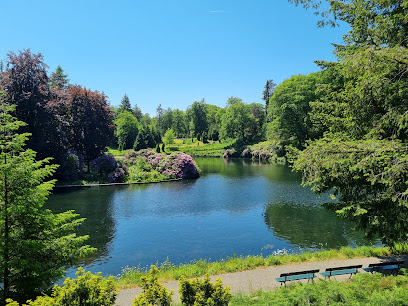
Dolfinarium
Experience the magic of marine life at Dolfinarium, where captivating dolphin shows and engaging exhibits await in the heart of Harderwijk.
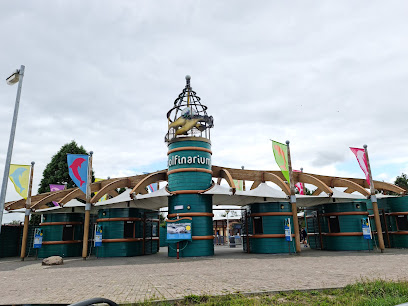
Het Nationale Park De Hoge Veluwe
Explore the breathtaking landscapes and artistic treasures of Het Nationale Park De Hoge Veluwe, a must-visit destination in the Netherlands for nature and art lovers alike.
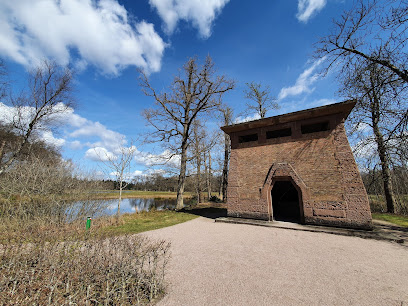
Kröller-Müller Museum
Explore the stunning Kröller-Müller Museum, home to Van Gogh's masterpieces amid the serene beauty of the Hoge Veluwe National Park.
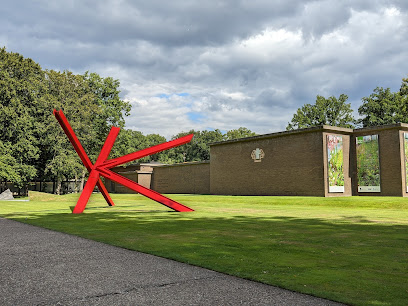
Julianatoren Apeldoorn
Discover the enchantment of Julianatoren, a premier theme park in Apeldoorn, Netherlands, perfect for family adventures and unforgettable experiences.
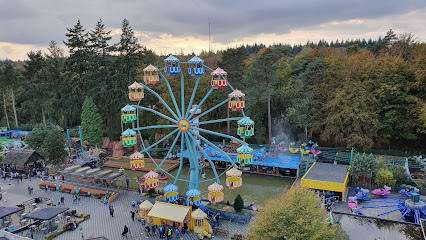
Nationaal Park Veluwezoom
Explore the breathtaking landscapes and diverse ecosystems of Nationaal Park Veluwezoom, the Netherlands' oldest national park, perfect for hiking and nature lovers.
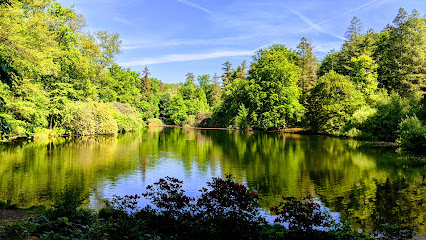
Paleis Het Loo
Explore the rich history and stunning architecture of Paleis Het Loo, a royal palace and museum in Apeldoorn, Netherlands, set amidst enchanting gardens.
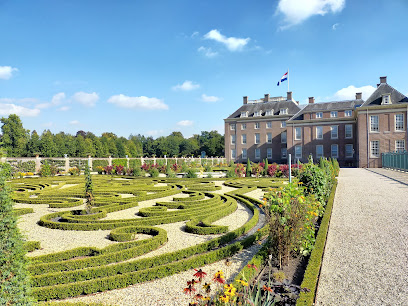
Paleispark Kroondomein Het Loo
Explore the serene beauty and rich history of Paleispark Kroondomein Het Loo, a royal park offering stunning gardens and architectural marvels in Apeldoorn.
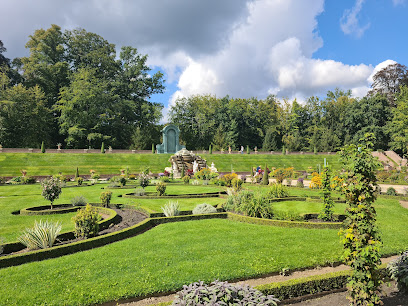
Veluwe
Discover the stunning beauty of Veluwe, the Netherlands' largest nature reserve, perfect for hiking, cycling, and wildlife spotting.
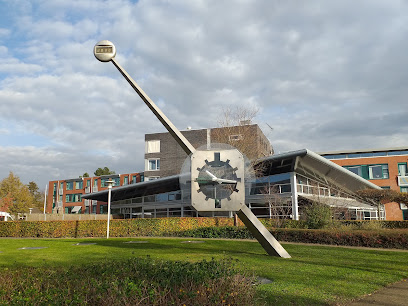
Park Berg en Bos
Discover the enchanting Park Berg en Bos in Apeldoorn, a serene escape filled with lush landscapes, vibrant wildlife, and endless recreational opportunities.
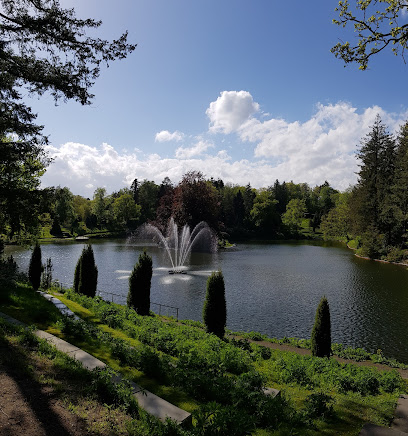
The Veluwsche Steam Train Company
Experience the charm of vintage steam trains at The Veluwsche Steam Train Company in Beekbergen, where history meets scenic beauty.
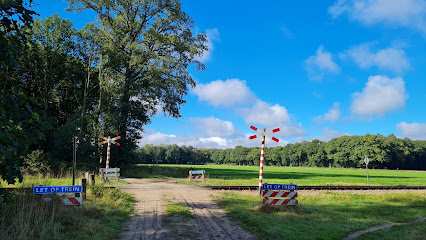
Ermelo sheepfold
Explore the serene beauty of the Ermelo Sheepfold, where nature, animals, and family fun come together in the heart of the Dutch countryside.
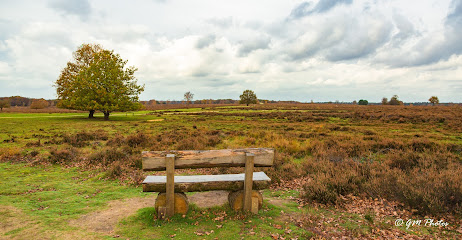
Country Residence Museum Jachthuis Sint Hubertus
Explore Jachthuis Sint Hubertus, a magnificent country house museum blending rich history, stunning architecture, and breathtaking natural landscapes in Hoge Veluwe National Park.
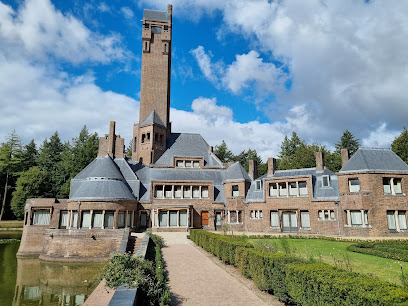
Kasteel en park Rosendael
Explore Kasteel en Park Rosendael: A stunning castle and park blend rich history, beautiful gardens, and culinary delights for an unforgettable experience.
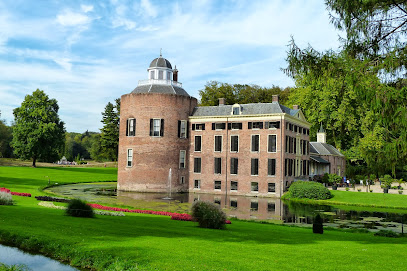
EuroParcs De Wije Werelt
Experience the serene beauty of nature at EuroParcs De Wije Werelt, where cozy cabins meet the tranquility of national forests in Otterlo.
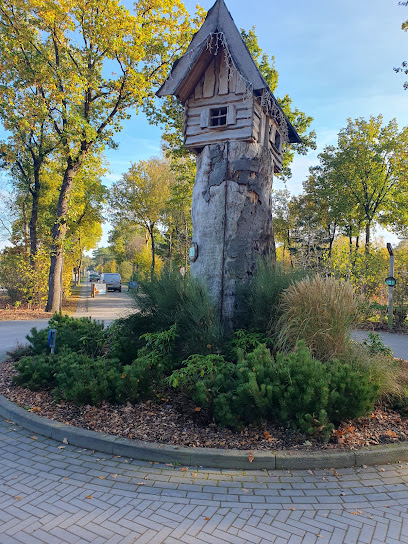
Unmissable attractions to see
Valkhof Museum
Explore the rich history and contemporary art at Valkhof Museum, a must-visit attraction in Nijmegen, Netherlands.
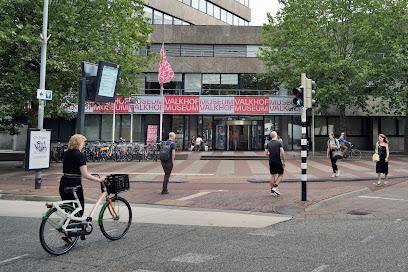
Oranjepark
Explore the natural beauty of Oranjepark in Apeldoorn, a serene park perfect for relaxation, family outings, and enjoying local events.
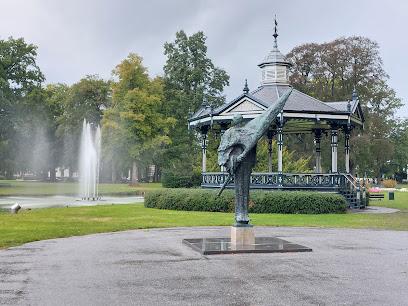
De Bastei
Discover Nijmegen's history and stunning views at De Bastei, a premier museum and monument showcasing the city's rich heritage.
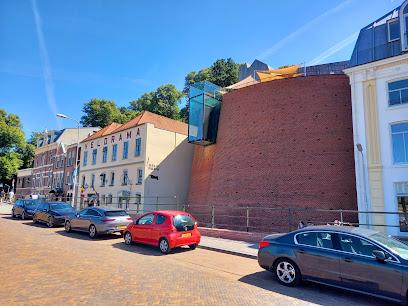
Zandverstuiving De Haere Doornspijk
Explore Zandverstuiving De Haere, a breathtaking national reserve in Doornspijk, where sandy landscapes meet diverse flora and fauna for an unforgettable adventure.
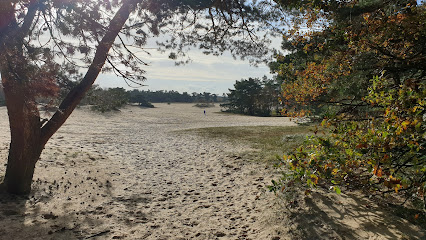
Museonder
Explore the underground treasures of Museonder in Hoge Veluwe National Park, where nature and education come together in a stunning setting.
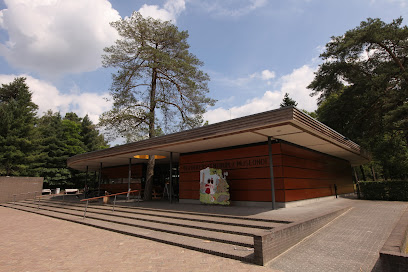
Open Farm De Groote Modderkolk of Nature
Experience the beauty of nature and the joy of healthy living at Open Farm De Groote Modderkolk in Loenen, the perfect family-friendly destination.
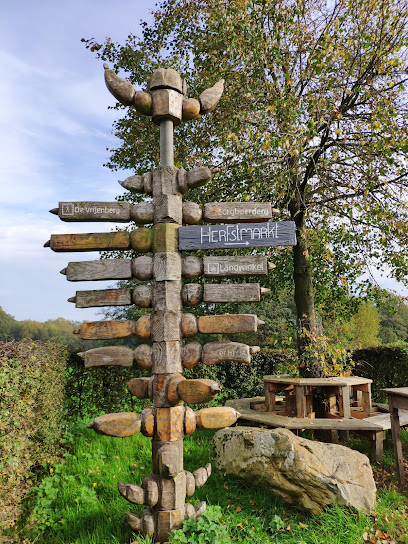
Nationaal Fietsmuseum Velorama
Discover the fascinating world of bicycles at Nationaal Fietsmuseum Velorama, a must-visit museum in Nijmegen celebrating cycling heritage and innovation.
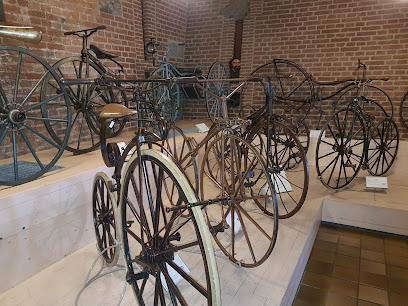
Brandtoren
Explore Brandtoren, a historical gem in National Park Veluwezoom, offering stunning views and a connection to nature and history.
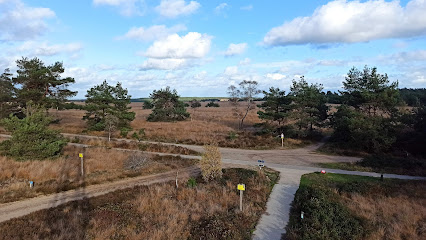
Beekbergerwoud
Explore the serene landscapes and rich biodiversity of Beekbergerwoud, a captivating national reserve in Klarenbeek, Netherlands.
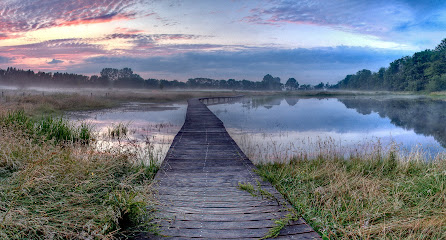
Museum and the Wildlife Park Nature House
Experience the beauty of wildlife and nature at Aardhuis Nature House, a top wildlife park in Hoog Soeren, perfect for families and nature lovers alike.
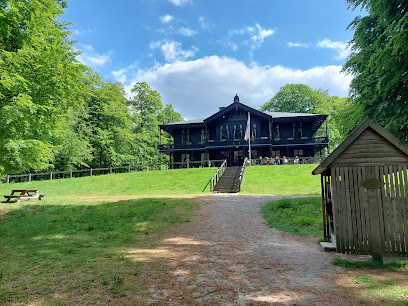
Wild boar park Berg en Bos
Experience the tranquility of nature at the Wild Boar Park Berg en Bos in Apeldoorn, where wildlife and serenity meet.
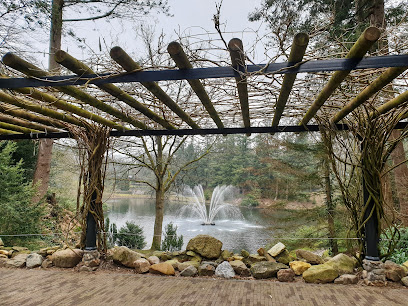
Center of Gravity of The Netherlands
Discover the tranquil beauty of the Center of Gravity of The Netherlands, a national forest in Putten that offers stunning landscapes and serene trails.
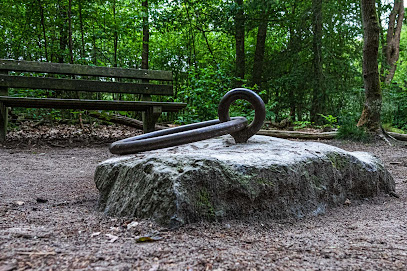
Sint-Nicolaaskapel
Explore the serene Sint-Nicolaaskapel in Nijmegen, a charming chapel rich in history and architectural beauty, perfect for quiet reflection.
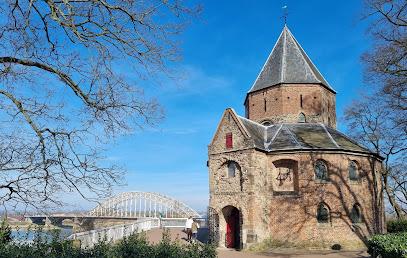
Wildhut
Explore the natural beauty of Wildhut, a serene nature preserve in Uddel, perfect for hiking, picnicking, and wildlife observation.
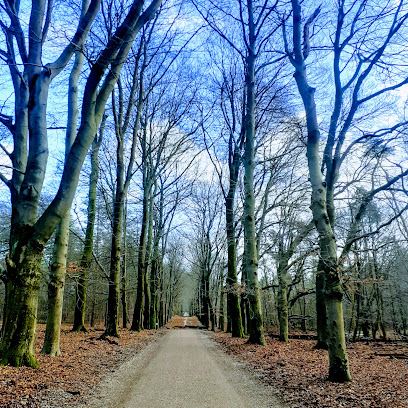
Barbarossa-ruïne
Explore the captivating Barbarossa Ruins in Nijmegen, a historical chapel steeped in legend and rich cultural heritage.
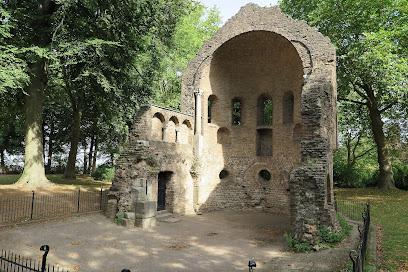
Essential places to dine
De Waldhoorn
Discover delightful Dutch cuisine at De Waldhoorn in Otterlo – where local flavors meet warm hospitality.
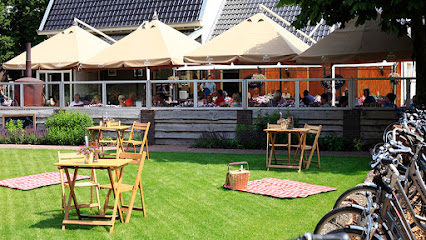
Pavilion De Posbank
Experience exquisite dining at Pavilion De Posbank amidst breathtaking views in Veluwezoom National Park.
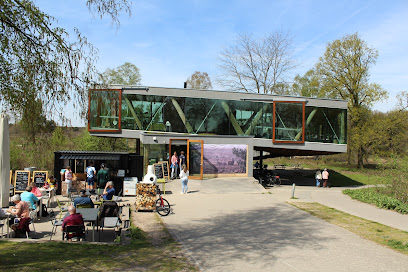
Fletcher Hotel-Restaurant Mooi Veluwe
Discover comfort and adventure at Fletcher Hotel-Restaurant Mooi Veluwe in the scenic heart of the Netherlands' Veluwe region.
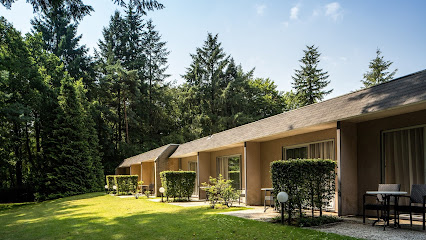
Buitenplaats Het Loo
Experience culinary delights at Buitenplaats Het Loo - where gourmet meat dishes meet delicious pancakes in serene natural surroundings.
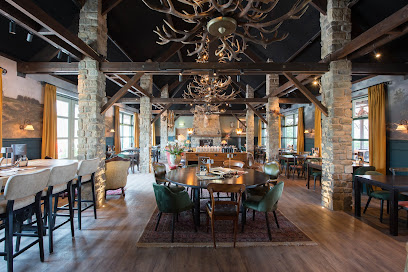
De Carolinahoeve
Discover delicious local cuisine and stunning hiking trails at De Carolinahoeve in the heart of a breathtaking national park.
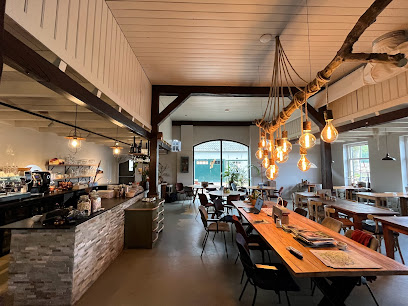
Brasserie Staverden
Discover culinary excellence at Brasserie Staverden, where nature meets delightful Dutch cuisine in a serene setting.
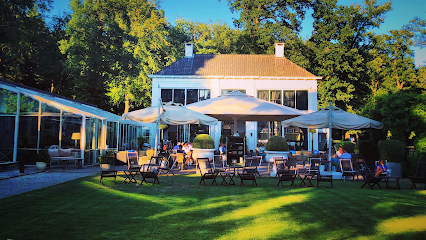
Brunch Hoenderloo
Experience delightful brunches and exquisite ice creams at Brunch Hoenderloo in the heart of nature's beauty.
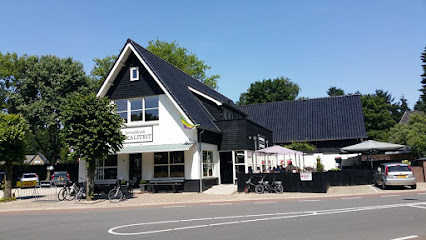
Brasserie Het Jachthuis
Experience exquisite Dutch cuisine at Brasserie Het Jachthuis in Hoog Soeren - where local flavors meet exceptional hospitality.
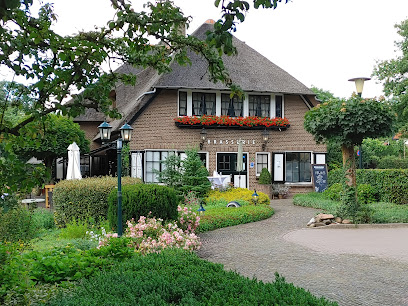
Restaurant De Veluwse Berg
Discover authentic Dutch cuisine at Restaurant De Veluwse Berg in Heerde – where every meal tells a story.
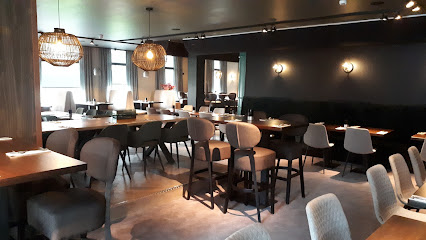
WOODZ
Experience delectable dishes at WOODZ, where culinary excellence meets the serene beauty of Veluwezoom National Park.
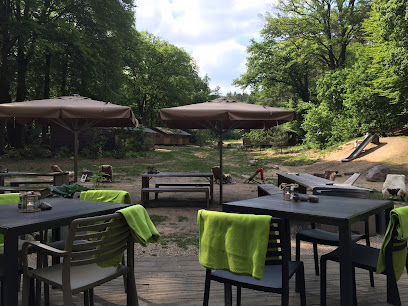
Brasserie Délicat
Experience exquisite Dutch cuisine at Brasserie Délicat in Hoenderloo – where every meal is crafted with passion and local flavors.
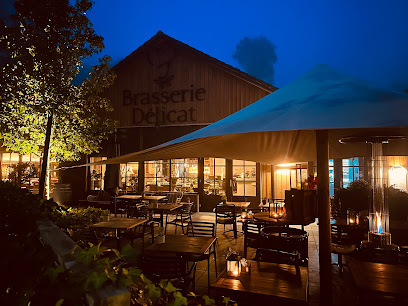
Restaurant De Veluwe
Experience exquisite Dutch cuisine amidst the serene landscapes of Hoenderloo at Restaurant De Veluwe.
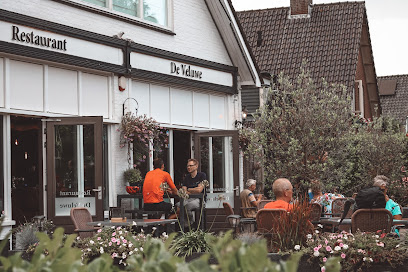
Dorpsherberg De Roskam
Experience authentic Dutch hospitality at Dorpsherberg De Roskam in Nunspeet—where comfort meets local cuisine in a picturesque setting.
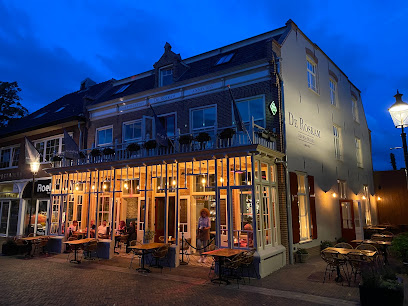
de Wever Lodge
Discover de Wever Lodge: A perfect blend of comfort and exceptional dining in the heart of Otterlo's natural beauty.
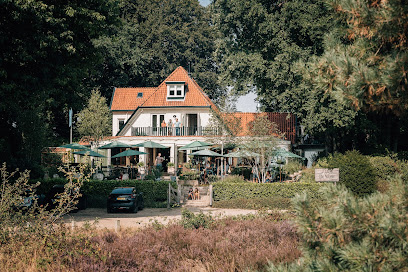
Restaurant Huis Te Eerbeek
Experience authentic Dutch cuisine at Restaurant Huis Te Eerbeek amidst scenic landscapes and warm hospitality.
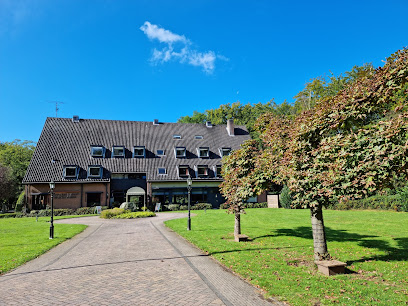
Markets, malls and hidden boutiques
Het Nationale Park De Hoge Veluwe
Discover the breathtaking landscapes and rich cultural heritage of Het Nationale Park De Hoge Veluwe, a top destination for nature lovers and art enthusiasts alike.
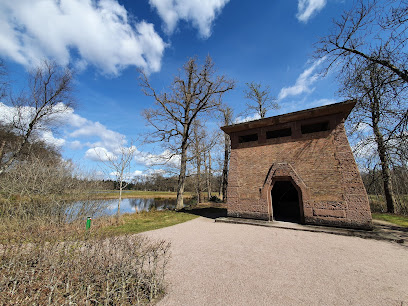
Kröller-Müller Museum
Discover the Kröller-Müller Museum: A unique blend of modern art and stunning natural landscapes in the heart of the Hoge Veluwe National Park.
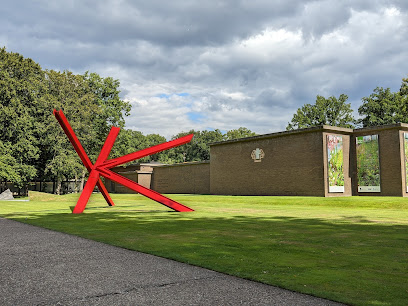
Kronenburg Shopping Center
Explore the vibrant Kronenburg Shopping Center in Arnhem, where shopping, dining, and entertainment come together for an unforgettable experience.
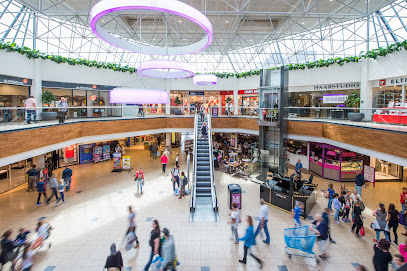
Nationaal Park Veluwezoom
Explore the breathtaking landscapes and diverse wildlife of Nationaal Park Veluwezoom, a premier hiking destination in the Netherlands.
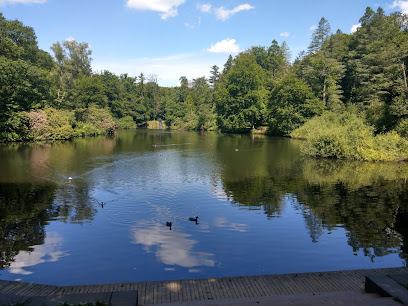
IJs van Co
Discover the creamy delights of IJs van Co, the ultimate ice cream destination in Hoenderloo, Netherlands, perfect for a sweet escape.
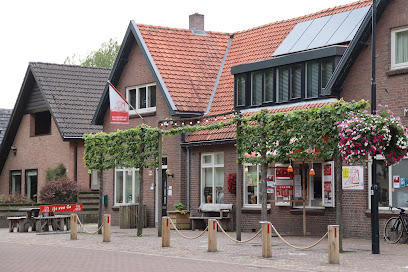
Ermelo sheepfold
Experience the serenity of the Dutch countryside at Ermelo Sheepfold, a family-friendly destination filled with sheep, nature trails, and educational fun.
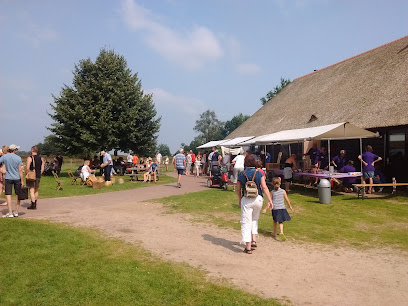
EuroParcs De Wije Werelt
Experience the tranquility of EuroParcs De Wije Werelt, a perfect blend of nature and comfort in the heart of a beautiful national forest.
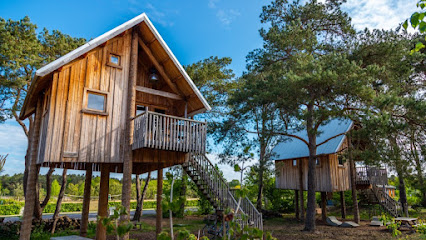
Brunch Hoenderloo
Discover the culinary delights at Brunch Hoenderloo, where delicious brunches and creamy ice creams await in a charming atmosphere.
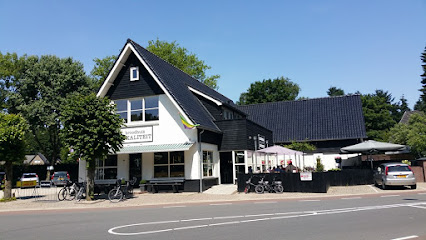
Museonder
Explore Museonder: An underground museum in Hoge Veluwe National Park revealing nature's hidden treasures and fostering environmental awareness.
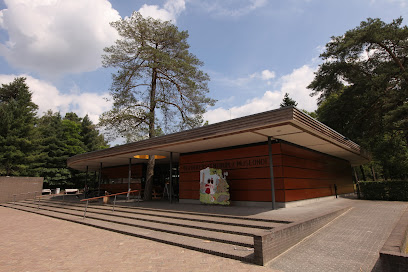
Winkelcentrum Bellestein Ede
Discover the vibrant shopping experience at Winkelcentrum Bellestein Ede, where fashion, food, and fun await in the heart of Ede, Netherlands.
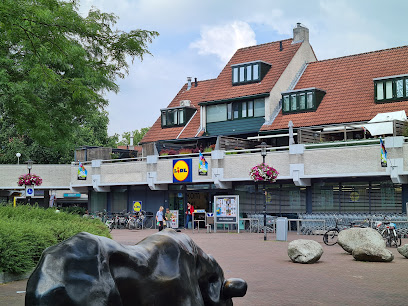
Ingang Otterlo Nationaal Park De Hoge Veluwe
Explore the breathtaking landscapes and rich cultural heritage of De Hoge Veluwe National Park, a must-visit destination in the Netherlands.
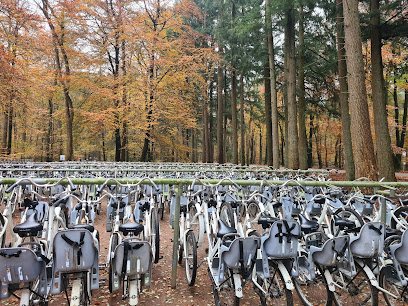
Ingang Hoenderloo Nationaal Park De Hoge Veluwe
Explore the stunning landscapes and rich wildlife of De Hoge Veluwe National Park, a true gem in the Netherlands.
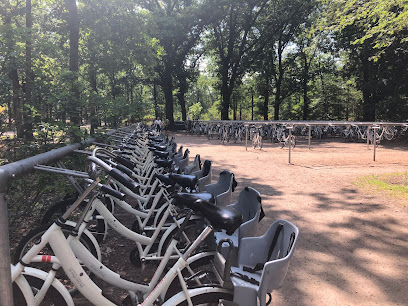
SPAR Otterlo
Explore Otterlo with SPAR: Your go-to convenience store for fresh produce, baked goods, and essential groceries in a charming village setting.
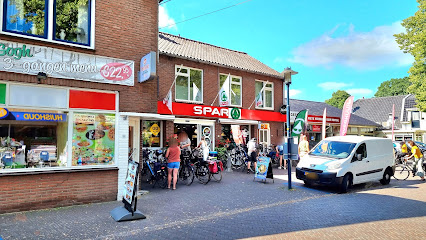
Park Paviljoen
Experience exquisite dining at Park Paviljoen, nestled in the breathtaking Hoge Veluwe National Park, where nature and culinary art meet.
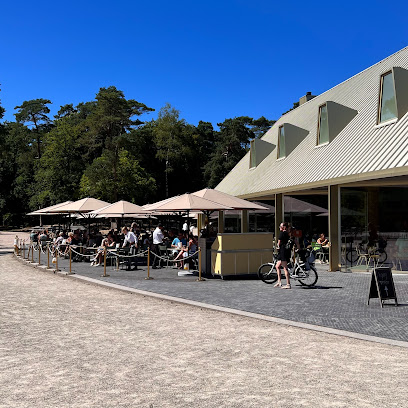
Veluwetransferium Posbank
Discover the breathtaking landscapes and outdoor adventures at Veluwetransferium Posbank, a natural paradise in the Veluwe region.
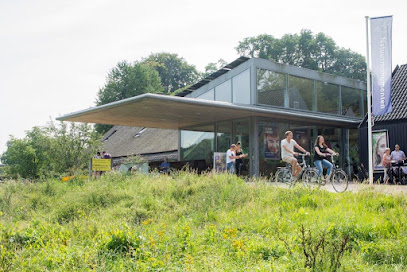
Essential bars & hidden hideouts
De Waldhoorn
Experience the essence of Dutch cuisine at De Waldhoorn, a charming restaurant in Otterlo, perfect for travelers seeking delicious local flavors.
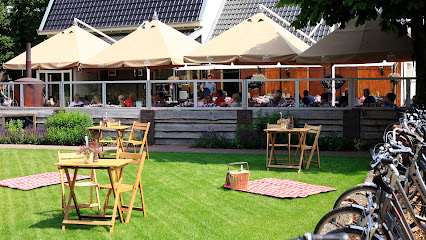
Pavilion De Posbank
Experience the perfect blend of nature and gastronomy at Pavilion De Posbank, a culinary gem in the heart of the Veluwe.
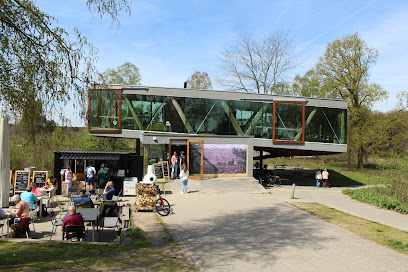
Brasserie Staverden
Discover culinary delights amidst nature's beauty at Brasserie Staverden in Ermelo, a perfect stop for food lovers and nature enthusiasts.
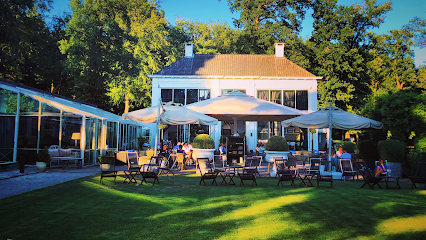
Brunch Hoenderloo
Discover the perfect brunch experience at Brunch Hoenderloo, offering delicious meals and homemade ice cream in a scenic Dutch setting.
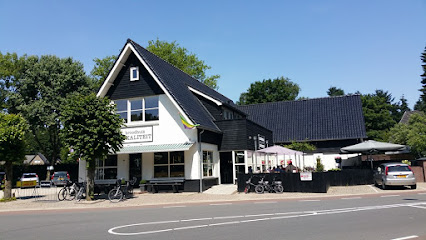
De Werelt Garderen
Experience a perfect blend of relaxation and adventure at De Werelt Garderen, your ideal retreat in the heart of the Dutch countryside.
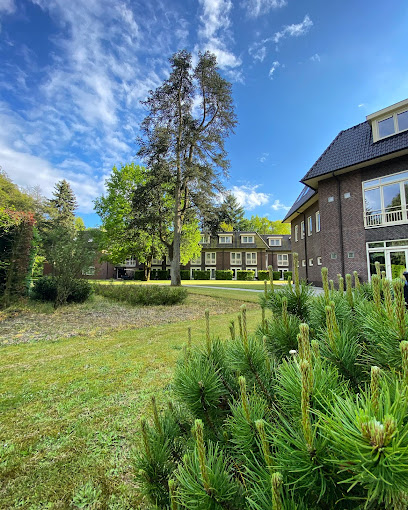
Brasserie Délicat
Experience exquisite dining at Brasserie Délicat in Hoenderloo, where delectable cuisine meets a warm, inviting atmosphere.
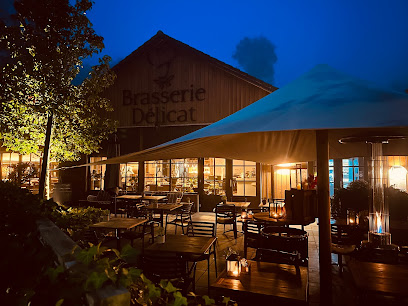
de Wever Lodge
Discover comfort and culinary excellence at De Wever Lodge, your ideal retreat in the heart of Otterlo's natural beauty.
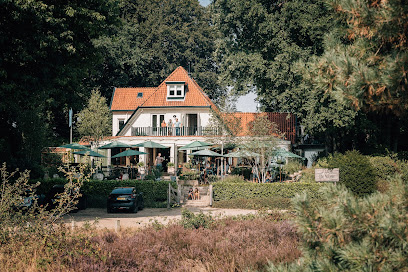
Brasserie Schovenhorst
Discover fresh, healthy cuisine in a serene setting at Brasserie Schovenhorst, where nature meets culinary excellence in Putten, Netherlands.
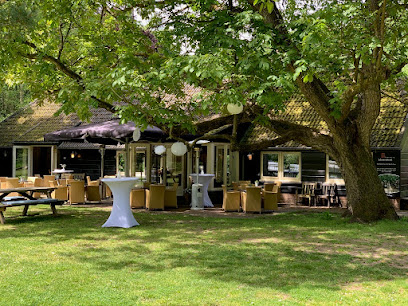
Herberg De Boer'Nkinkel
Discover the charm of Herberg De Boer'Nkinkel, where comfort meets nature in the heart of Hoenderloo, perfect for your Dutch getaway.
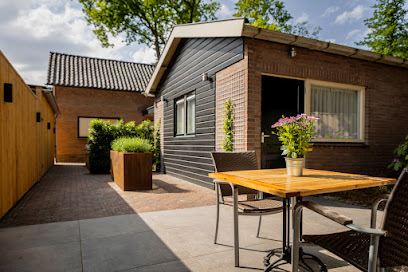
Restaurant De Hoge Veluwe
Discover culinary excellence at Restaurant De Hoge Veluwe, where nature meets exceptional dining in the heart of the national park.
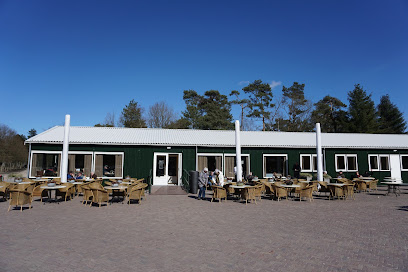
Restaurant Cèpes | Otterlo
Discover the exquisite flavors of local cuisine at Restaurant Cèpes, the culinary gem of Otterlo, offering a delightful dining experience in a serene setting.
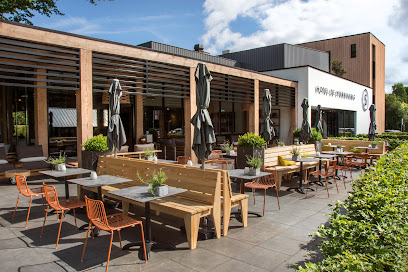
.
Experience the delightful flavors of Otterlo at this charming self-service restaurant, surrounded by nature's beauty.
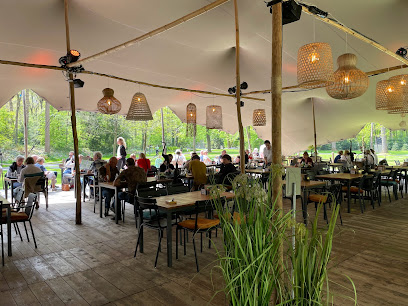
Restaurant EuroParcs Veluwemeer
Discover the exquisite culinary experience at EuroParcs Veluwemeer, where nature meets delightful flavors in a serene setting.
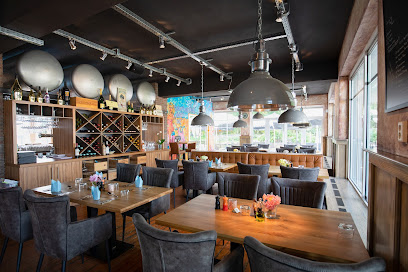
Park Paviljoen
Discover the perfect blend of nature and local cuisine at Park Paviljoen, your oasis in Hoge Veluwe National Park.
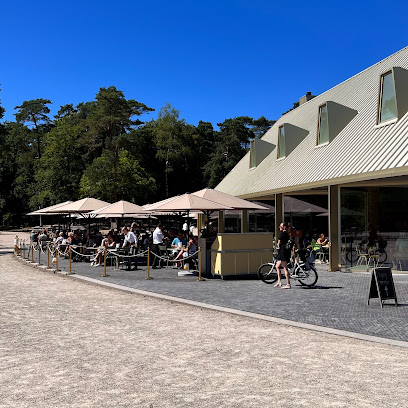
Local Phrases about Veluwe National Park
-
- HelloHallo
[HAH-loh] - GoodbyeDoei
[DOH-ay] - YesJa
[yah] - NoNee
[nay] - Please/You're welcomeAlsjeblieft
[ALS-ye-bleft] - Thank youDank je wel
[dahnk yeh vel] - Excuse me/SorrySorry
[SOH-ree] - How are you?Hoe gaat het met jou?
[hoo gahht het met yow] - Fine. And you?Goed. En met jou?
[khoot. en met yow] - Do you speak English?Spreek je Engels?
[sprayk yeh EHNG-uls] - I don't understandIk begrijp het niet
[ik buh-KHRYP het neet]
- HelloHallo
-
- I'd like to see the menu, pleaseIk zou graag de menukaart willen zien, alsjeblieft
[ik zow khrahkh duh meh-noo-kahrt VIL-uhn zeen, als-ye-bleft] - I don't eat meatIk eet geen vlees
[ik ayt khayn vleys] - Cheers!Proost!
[prohst] - I would like to pay, pleaseIk zou graag willen betalen, alsjeblieft
[ik zow khrahkh VIL-uhn buh-TAH-luhn, als-ye-bleft]
- I'd like to see the menu, pleaseIk zou graag de menukaart willen zien, alsjeblieft
-
- Help!Help!
[help] - Go away!Ga weg!
[gah vekh] - Call the Police!Bel de politie!
[bel duh poh-lee-see] - Call a doctor!Bel een dokter!
[bel ayn DAHK-tuhr] - I'm lostIk ben verdwaald
[ik ben vur-DWAAHLT] - I'm illIk ben ziek
[ik ben zeek]
- Help!Help!
-
- I'd like to buy...Ik zou graag willen kopen...
[ik zow khrahkh VIL-uhn KOH-pen] - I'm just lookingIk ben alleen aan het kijken
[ik ben AHL-ayn ahn het KEE-kuhn] - How much is it?Hoeveel kost het?
[HOO-vayl kost het] - That's too expensiveDat is te duur
[daht is tuh dohr] - Can you lower the price?Kunt u de prijs verlagen?
[koont oo duh prays vur-LAH-ghun]
- I'd like to buy...Ik zou graag willen kopen...
-
- What time is it?Hoe laat is het?
[hoo laht is het] - It's one o'clockHet is een uur
[het is ayn oor] - Half past (10)Half elf
[hahlf elf] - MorningOchtend
[OHK-tuhnt] - AfternoonMiddag
[MIH-dahkh] - EveningAvond
[AH-vont] - YesterdayGisteren
[GHIHS-tuh-run] - TodayVandaag
[vahn-dahkh] - TomorrowMorgen
[MOHR-khun] - 1Een
[ayn] - 2Twee
[tvay] - 3Drie
[dree] - 4Vier
[veer] - 5Vijf
[vayf] - 6Zes
[zehs] - 7Zeven
[zay-vuhn] - 8Acht
[ahkht] - 9Negen
[nay-khun] - 10Tien
[teen]
- What time is it?Hoe laat is het?
-
- Where's a/the...?Waar is een/de...?
[vahr is ayn/deh] - What's the address?Wat is het adres?
[vaht is het AH-dres] - Can you show me (on the map)?Kun je het me laten zien (op de kaart)?
[koon yuh het meh LAH-tun zeen (op duh kahrt)] - When's the next (bus)?Wanneer is de volgende (bus)?
[VAH-nayr is duh vohl-HUN-duh (bus)] - A ticket (to ....)Een kaartje (naar ....)
[ayn KAHRT-yuh (nahr)]
- Where's a/the...?Waar is een/de...?
History of Veluwe National Park
-
The Veluwe area was formed during the last Ice Age, around 150,000 years ago. Glaciers and meltwater carved out the unique landscape, leaving behind sandy soils, heathlands, and moraines. The natural formation set the stage for the diverse ecology that the region is known for today.
-
Archaeological findings indicate that the Veluwe was inhabited as far back as 11,000 BC. These early settlers were hunter-gatherers who left behind tools and artifacts, giving us a glimpse into their lifestyle. Megalithic tombs, known as 'hunebedden', can also be found, dating from the Neolithic period.
-
During the medieval period, the Veluwe became a strategic area for nobility. Many castles and estates were built, including the iconic Doorwerth Castle and Rosendael Castle. These structures served as fortifications and residences for noble families, influencing the cultural landscape of the region.
-
Hoge Veluwe National Park, the largest continuous nature reserve in the Netherlands, was established in 1935. The park was the vision of Anton and Helene Kröller-Müller, who aimed to preserve the natural beauty and biodiversity of the area. They also contributed the Kröller-Müller Museum, which houses an extensive collection of artworks.
-
The Veluwe was a significant battleground during World War II. The region saw intense fighting during Operation Market Garden in 1944. Various war memorials and cemeteries, such as the Arnhem Oosterbeek War Cemetery, stand as a testament to the area's wartime history.
-
In the late 20th and early 21st centuries, significant efforts have been made to conserve the Veluwe's unique landscapes and biodiversity. Modern conservation initiatives focus on sustainable tourism, wildlife protection, and habitat restoration. The park is now a model for balancing human activity with natural preservation.
Veluwe National Park Essentials
-
Veluwe National Park is located in the province of Gelderland in the Netherlands. The nearest international airports are Amsterdam Schiphol Airport (AMS) and Eindhoven Airport (EIN). From Amsterdam, you can take a direct train to Apeldoorn or Ede-Wageningen, which are the closest towns to the park. The train journey takes approximately 1 to 1.5 hours. From these towns, you can take a local bus or a taxi to the park entrance.
-
Once you arrive at Veluwe National Park, you have several options for getting around. Bicycles are a popular choice, and the park offers free white bicycles at various locations. There are also bus services within the park, and you can rent cars or use taxis for more convenience. Walking trails are well-marked, making it easy to explore on foot.
-
The official currency in the Netherlands is the Euro (EUR). Credit and debit cards are widely accepted, but it's advisable to carry some cash for smaller establishments and rural areas within the park. ATMs are available in nearby towns like Apeldoorn and Ede, so you can easily withdraw cash if needed.
-
Veluwe National Park is generally very safe for tourists. However, as with any travel destination, it's wise to take standard precautions. Keep an eye on your belongings and avoid isolated areas at night. There are no specific high-crime areas targeting tourists, but always stay vigilant and aware of your surroundings.
-
In case of an emergency, dial 112 for immediate assistance. Veluwe National Park has first aid stations and park rangers who can assist in emergencies. Nearby towns like Apeldoorn and Ede have hospitals and medical facilities. It's recommended to have travel insurance that covers medical emergencies. Pharmacies in nearby towns can provide over-the-counter medications for minor health issues.
-
Fashion: Do dress comfortably and appropriately for outdoor activities. Layers are advisable due to the changing weather. Religion: Do respect local customs and traditions. Public Transport: Do be punctual and polite when using public transport. Don’t eat or drink on buses. Greetings: Do greet people with a friendly 'Hallo' or 'Goedendag'. A handshake is also common. Eating & Drinking: Do try local Dutch cuisine available in nearby towns. Don’t litter in the park; always use designated trash bins.
-
To experience Veluwe National Park like a local, rent a bike and explore the extensive cycling paths. Visit the Kröller-Müller Museum located within the park, which houses an impressive collection of Van Gogh paintings. Don't miss the chance to see the Hoge Veluwe's diverse wildlife, including deer and wild boar. Early morning or late afternoon is the best time for wildlife spotting. Engage with park rangers and local guides who can provide insightful information about the park's flora and fauna.
Trending Landmarks in Veluwe National Park
-
Apenheul
-
Dolfinarium
-
Het Nationale Park De Hoge Veluwe
-
Kröller-Müller Museum
-
Julianatoren Apeldoorn
-
Nationaal Park Veluwezoom
-
Paleis Het Loo
-
Paleispark Kroondomein Het Loo
-
Veluwe
-
Park Berg en Bos
-
The Veluwsche Steam Train Company
-
Ermelo sheepfold
-
Country Residence Museum Jachthuis Sint Hubertus
-
Kasteel en park Rosendael
-
EuroParcs De Wije Werelt
Nearby Cities to Veluwe National Park
-
Things To Do in Nijmegen
-
Things To Do in Amersfoort
-
Things To Do in Utrecht
-
Things To Do in Zwolle
-
Things To Do in Amsterdam
-
Things To Do in Eindhoven
-
Things To Do in Haarlem
-
Things To Do in Leiden
-
Things To Do in Rotterdam
-
Things To Do in Delft
-
Things To Do in The Hague
-
Things To Do in Essen
-
Things To Do in Dusseldorf
-
Things To Do in Munster
-
Things To Do in Genk












